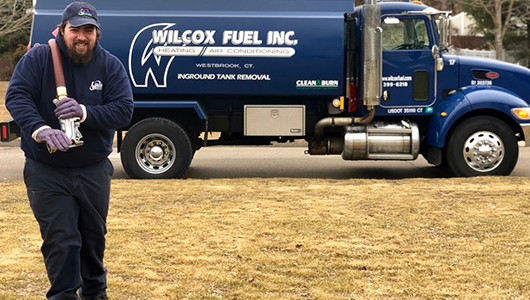Contents

According to the US Department of Energy, bio diesel is one of a few different energy sources that use animal fats, recycled cooking oils, and plant oils as an alternative fuel. While other types of energy usage lead to increased emissions, this fuel source eliminates the need for petroleum-derived diesel fuel.
The Energy Information Administration used to track monthly biodiesel fuel production. Based on their findings, it appears the biggest source of B100 (100% biodiesel) is soybean oil. The US also produces biodiesel blends each month, which consist of petroleum diesel fuel and pure biodiesel.
Bio diesel is an important fuel source because it will help the world achieve efficiency, sustainability, and energy security in the future.
What Is Bio Diesel Fuel?
Biodiesel fuel is a renewable energy source that businesses and local governments are focusing on producing to help improve renewable energy production to minimize climate change. Many scientists believe that the world is facing a climate crisis, so experts are focusing their efforts on creating environmentally friendly solutions like biodiesel, solar energy, geothermal energy, biomass fuels, wind turbines, and hydroelectric power.
This fuel source provides numerous benefits. It can help reduce overall global warming greenhouse gas emissions. It’s used to power most diesel equipment as is and only minor modifications are often needed to use this fuel source. It’s compatible with the latest diesel engine technology, and it’s suitable for sensitive environments because it’s biodegradable and non-toxic.
The best part is this energy source is renewable, unlike fossil fuels that will eventually run out. It also displaces the need for petroleum-derived diesel fuels, which helps to preserve and protect the environment by eliminating emissions through the use of recycled resources and agriculture.
What Is Bio Diesel Made Of?
This fuel is made using a wide variety of different materials during biodiesel production. Scientists use the transesterification process for biodiesel fuel.
The surprising thing is it’s easier to create this fuel than one might think. The main ingredients are called biofuel crops and they include such oils as soybean oil, vegetable oil, cooking oil, and waste vegetable oil. Other crops and animal fats are also used during the production process.
Waste oils are particularly effective because they become a renewable form of diesel fuel instead of left-over waste. These repurposed restaurant food greases aren’t being used for other purposes. Using them to create biomass for biodiesel fuel delivery makes perfect sense and it’s helpful to the environment.
Petroleum Diesel Fuel Vs. Biodiesel Fuel

It comes as no surprise to learn that petroleum diesel fuel and biodiesel fuel are very different. When the biggest goal is to reduce carbon emissions, biodiesel is the superior choice over fossil fuels like petroleum.
For starters, biodiesel contains higher levels of oxygen content by anywhere from 10% to 12% than petroleum diesel. This is important because it helps to lower pollution emissions. The downside is that it reduces diesel engine power by roughly 4%, but it’s a fair trade-off to keep the environment healthy while reducing the need for crude oil, heating oil, and other carbon-based fuels.
Biodiesel has very little sulfur within it. This is precisely what is needed as a fuel source because it helps to limit the amount of pollution being produced from engines that use diesel fuel. And biodiesel is also more slippery than petroleum diesel. Trucking companies appreciate that it helps to reduce wear and tear on their engines.
Biodiesel has potentially negative aspects as a renewable fuel created during the biodiesel production process. This fuel tends to gel up when temperatures are low much more than petroleum diesel does. Certain biofuels are bigger culprits than others.
Nevertheless, biodiesel will likely oxidize and create a semisolid gel-like mass. This becomes a concern to those who use engines that they only operate on certain occasions. A power generator is a prime example. Keep biodiesel fuels stored in a semi-sealed light-tight container in a cool and dry place for best results.
What Are Bio Diesel Blends?
Biodiesel is a substance that has the ability to be blended in a number of different concentrations. Common biodiesel blends include B5, which contains 5% biodiesel, and B20, which contains as much as 6% to 20% biodiesel.
For home heating, LSHO is a popular choice. It stands for low sulfur heating oil. An even purer option is called ultra-low sulfur heating oil, or ULSHO for short. These clean, energy-efficient fuel sources do wonders to reduce carbon emissions. Plus, these fuels are so clean that homeowners will hardly need to clean their heating equipment after they begin burning this fuel regularly.
B100 and other high-level blends of biodiesel are used less commonly at this point, but they are ultimately used as liquid renewable diesel fuel for vehicles. These higher blends typically require equipment modifications to avoid problems operating diesel engines.
How Do Biofuels Help Reduce Carbon Emissions?
Biofuels can reduce harmful emissions in a number of different ways. The Energy Information Administration says the main reason these fuels remain carbon neutral is the plants used to make them absorb carbon dioxide. This offsets CO2 emissions created by less pure biofuels and petroleum-based diesel fuels.
The process to convert biomass feedstocks into biofuels is one that is very environmentally friendly. These fuels are used in diesel engines for transportation, furnaces for home heating, and more. Substances like bioethanol can be used in lieu of gasoline, which will reduce atmospheric CO2.
They are also fully compatible with the natural carbon cycle. Growing new biomass fuels leads to removing unwanted CO2 from the environment, which is another big benefit even if it was originally an unintended consequence. It’s still incredibly positive nonetheless.
How Oil-Heat Users Can Do Their Part To Reduce Greenhouse Gas Emissions By Using Biodiesel Blends

Oil heat users are in a unique position. They can immediately begin doing their part to reduce greenhouse gas emissions. All they need to do is switch their fuel delivery from using regular home heating oil and begin using biodiesel blends that reduce carbon emissions and help prevent climate change.
For now, it’s best to use lower biodiesel blends like B5 and B20. Unlike B100, which has a much higher viscosity and is less effective with your fuel system components, these other blends have a lower viscosity.
This means they work much more effectively with your home heating equipment. Plus, these biofuel blends give you the opportunity to reduce harmful emissions by as much as 20%.
This is a winning situation for homeowners because they can take the necessary steps to protect the earth from harm. It’s also a wonderful opportunity for the environment because lesser greenhouse gas emissions mean the earth will thrive for many more years to come.
Bioheat – The Oil Industry’s Solution To Help Reduce Emissions Today

The Paris Agreement is an international treaty of a legally binding nature. 196 countries agreed to reach net-zero emissions by 2050, which will tremendously improve the renewable fuel standard.
Homeowners and business owners can reap these benefits right away by switching to Bioheat, a premium heating oil. Bioheat uses liquid renewable fuel including a B20 blend to reduce carbon emissions. Switching to this fuel will help the United States reduce carbon emissions and ultimately achieve net zero emissions by the required the agreed-upon year of 2050.
Contact Wilcox Energy immediately to discover more about Bioheat home heating fuel and begin lowering carbon emission output right away!
Conclusion
The world has finally realized that it’s time to do something about harmful greenhouse emissions. We have the wherewithal and technology to create clean, affordable, and environmentally friendly biofuels including biodiesel. These fuels were specifically developed to heat homes, fuel vehicles, and create electricity in a more renewable and long-term way.
Given enough time, biofuels could eventually eliminate greenhouse gases entirely, once the transesterification process is perfected. The future looks very bright for the environment and plant-based biofuels are certainly leading the charge toward a better and brighter carbon-free world. Join us in making the world a better place by switching to biofuels to meet import and home heating needs.
Call Wilcox Energy To Order Bioheat® Heating Oil Today

As mentioned above, Bioheat® heating oil packs all the benefits of a premium heating oil in one. It can be used with traditional heating systems without any adjustments, cutting the costs of modifications and converting to other heat sources. As a biodiesel and ULSHO (ultra-low sulfur heating oil) blend, your heater runs more efficiently and cleaner while preserving its condition. Bioheat® heating oil uses 100% biodiesel to create a blend with lower carbon emissions, making it a safer choice for the environment and a safer option to use in your home.
Call Wilcox Energy today to learn more about Bioheat® fuel and join us in reducing carbon emissions today!
For more information about our Bioheat® heating oil deliveries or our HVAC services, be sure to contact Wilcox Energy. You can click here to contact us, or you can call us at (860) 399-6218 to find out more. We offer a full line of home comfort services, all customizable to meet your needs. Call now!
